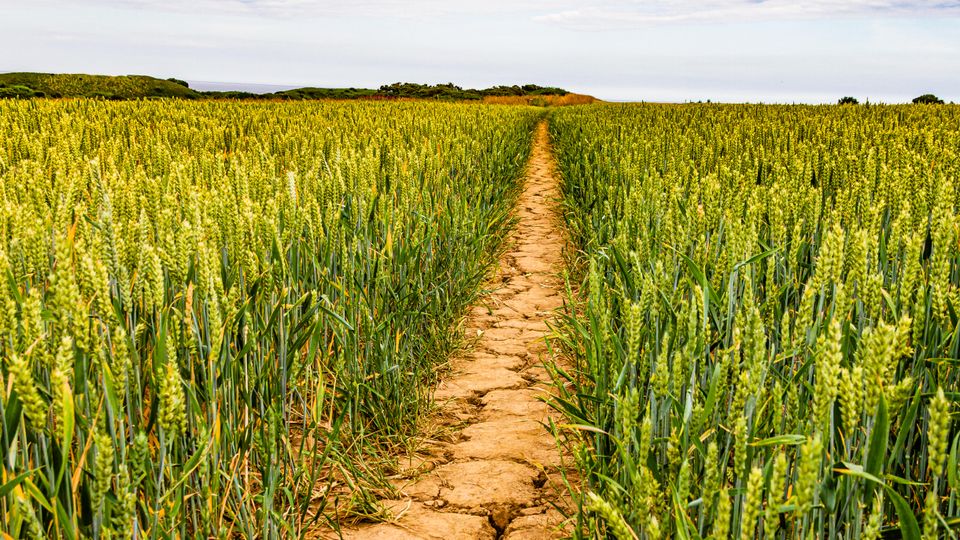Farmers in East Yorkshire and Northern Lincolnshire are having to decide whether to use emergency water supplies to water their crops.
Due to the warm weather we're getting - farmers say the ground's drying out too much causing crops to wilt.
Steve Risdale has a farm near Pocklington, he said:
"All the cereal crops that were sun in autumn time, they're still just about okay, but they're starting to show signs of drought stress now, and if it doesn't rain in the next couple of weeks, then I think we'll really start to see big yield penalties,
"Sugar beet, and some of those haven't germinated. Bizarrely, the sandyland, the crops have germinated, but then they may be struggling now, and it's the heavy land. It dries out the sort of clear lands. They dry out.
"If our yields are compromised, we'll import it from somewhere else in the world. But then you sort of end up with the world price, but you've only got a lower yield of cereals and tonnage of cereals to sell off your farm.
"They may have cereal crops as well. And do they use some of the water for the cereal crops now and hope it rains later on? Or do they not irrigate the cereal crops and leave that reservoir of water later on for the crops that are really going to really need it?"
The Environment Agency has warned of a "medium" risk of drought in England this summer without sustained rainfall, after the country experienced its driest start to spring, in March and April, in 61 years.
The regulator has said there are currently no hosepipe bans planned, but warned water companies might have to implement measures including restrictions in the months ahead.
The regulator has urged utilities to take action to cut leaks and help customers save water and Thames Water is among the firms warning of the potential for water restrictions for its 16 million customers if the weather stays dry.
It is a marked change in the weather after England endured the wettest 12 months from October 2023 to September 2024, causing devastating flooding and leaving farmers struggling to get crops into the ground.
And experts warn the extremes are a sign of things to come with climate change.
Source - https://hellorayo.co.uk













